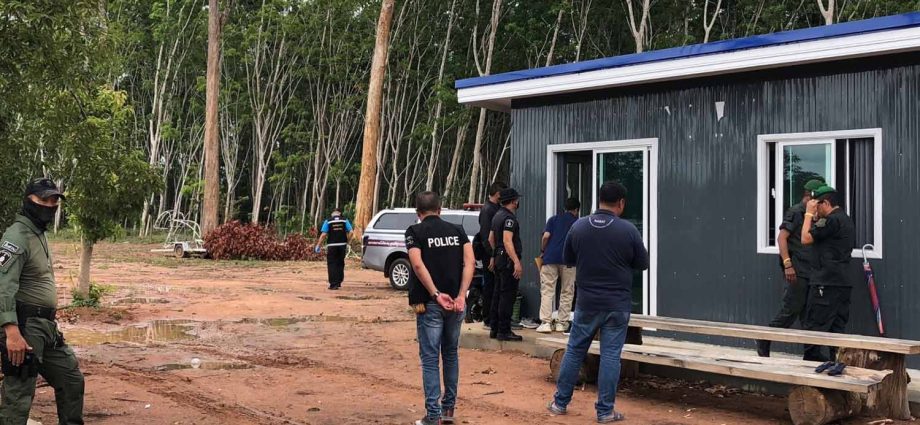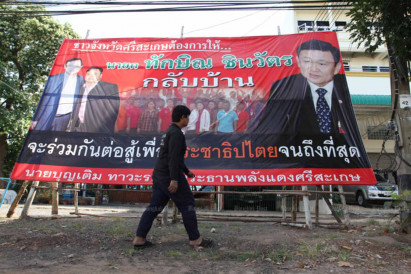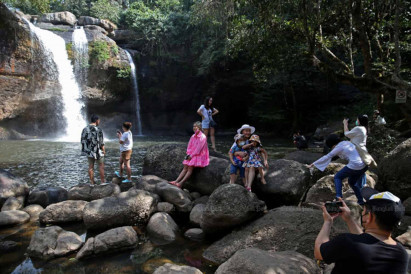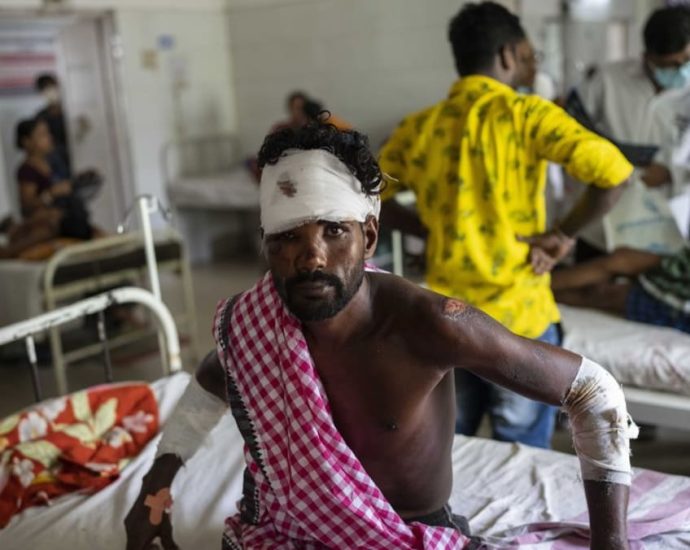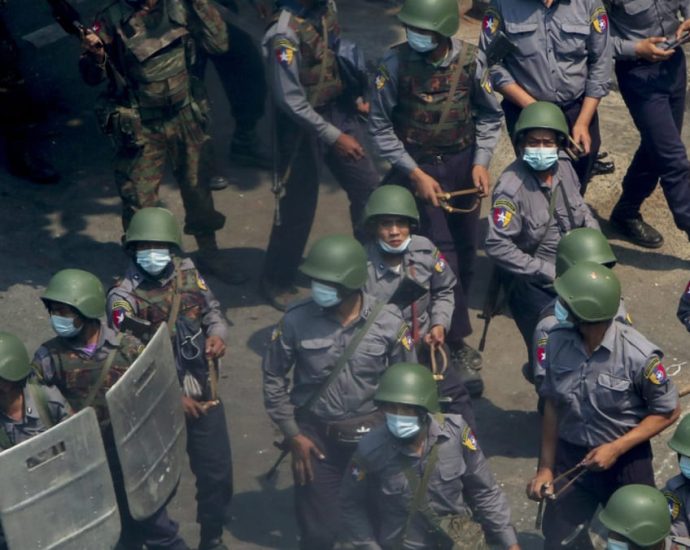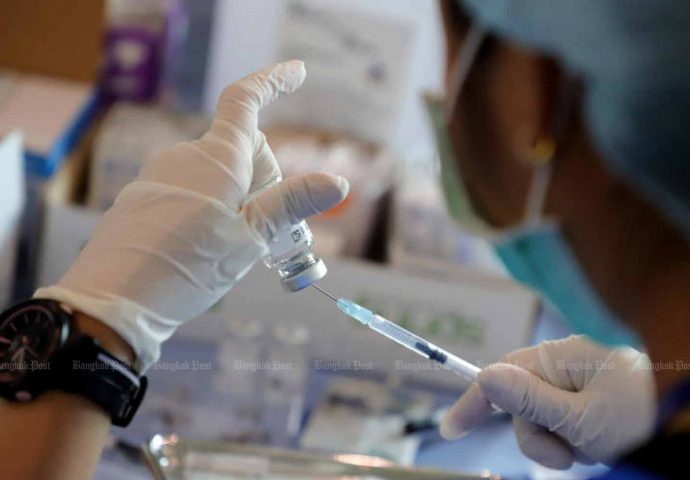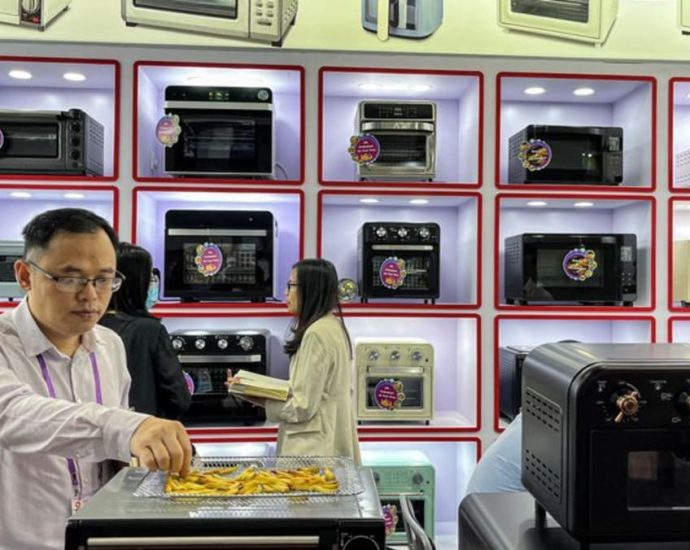Tour fraudsters arrested in Surat Thani

SURAT THANI: Three men and three women were arrested for allegedly selling bogus overseas tours worth about 27 million baht.
Pol Maj Gen Saranyu Chamnanrat, Surat Thani police chief, said on Monday the suspects were arrested at their office in Phun Phin district of the southern province on Sunday.
The arrest followed complaints from 99 local people that they had bought tour packages for trips to Japan and European countries from the suspects’ company, but their trips never materialised.
The complainants said they paid about 27 million baht altogether to the company after it advertised cheap tour packages on Facebook. The suspects are 40-60 years old and are natives of Phun Phin, Ban Ta Khun and Kanchanadit districts.
Pol Maj Gen Saranyu said the suspects opened their company early last year and claimed the Tourism Authority of Thailand subsidised their tour packages.
Thaksin set to return in July, says daughter Paetongtarn

Pheu Thai Party’s prime ministerial candidate Paetongtarn “Ung Ing” Shinawatra said Thaksin, her father and former prime minister, looks set to return to Thailand in July, but the exact date is not yet known.
“I don’t know the exact date yet. He (Thaksin) said it would be next month (July),” Ms Paetongtarn said on Sunday, in responding to questions from reporters.
Thaksin, who lives in exile in Dubai, had said he would return home in July, citing his old age and the desire to be with his grandchildren.
Asked whether she planned to go to Dubai to accompany her father back home, she said: “As a daughter, I would like to do that so we could come back together. I am very excited. But this is not yet definite. I would tell you when I know for sure.”
Asked again whether Thaksin would definitely return in July, Ms Paetongtarn said: “I respect my dad’s decision. So, whatever it is, I give him my full moral support.”
When asked about the matter, Chaithawat Tulathon, the Move Forward Party secretary-general, said it was Thaksin’s own decision. If he returns, he has the right to enter a normal legal process.
Asked about Move Forward’s plan to be propose a draft bill to pardon people indicted in political cases, Mr Chaithawat said this had nothing to do with Thaksin’s plan to return. The legislation would be intended for people who had been indicted in political cases, not corruption or criminal ones, he added.
Thaksin was overthrown in a military coup on 19 Sept, 2006. He has since lived in self-imposed exile except for a brief visit to Thailand in 2008.
During his absence from the country, the Supreme Court’s Criminal Division for Holders of Political Positions sentenced him in absentia to a total of 12 years imprisonment in four cases.
In the first case, the court found him guilty of abuse of power in his wife Khunying Potjaman’s purchase of a state-owned plot in Ratchadapisek area at a price far below the market value. In October 2008, he was sentenced to two years in prison. However, the 10-year statute of limitations for the court ruling expired in October 2018.
In the second case, Thaksin was sentenced to two years in prison after he was found guilty of malfeasance in a case concerning the two- and three-digit lottery.
In the third case, Thaksin was handed down three years in jail for abusing his position by authorising loans totaling 4 billion baht to Myanmar via the Export-Import Bank of Thailand. The loans were then spent on buying supplies from a telecom firm owned by his family.
In the fourth case, the former prime minister was given five years in prison when the court found him guilty of using nominees to hold shares in Shin Corp. The law prohibits any political office holder from owning shares in a telecommunications company.
The statutes of limitations for the court decisions on the second, third and fourth cases have not expired.
Thousands flock to Khao Yai for long holiday

Thousands of travellers flocked to Khao Yai National Park for a long holiday from June 3-5, generating nearly 800,000 baht in revenue for the park from entrance fees, park chief Chaiya Huayhongthong revealed on Monday.
He said a total of 13,370 Thai and foreign holidaymakers visited the park during the period. They included 11,947 Thai adults, 943 Thai children, 394 foreign adults and 86 foreign children.
They travelled to the park via two entry points – the Chao Pho Khao Yai Shrine in Pak Chong district, Nakhon Ratchasima province, and Noen Hom in Muang district, Nakhon Nayok – with 3,585 cars, 623 motorcycles and a six-wheel passenger bus. The park collected a total of 784,590 baht in revenue from entrance fees.
Elderly people aged 60 and over, 578 in total, and 54 children aged 3 and lower were exempted from the entrance fees.
Khao Yai National Park is a World Heritage Site straddling Saraburi, Nakhon Ratchasima, Prachinburi, and Nakhon Nayok provinces. It is still rich with natural resources such as forests and wildlife, and well-known for natural tourist spots with cool weather throughout the year.
Only about 170 kilometres from Bangkok, the park’s scenic views draw numerous visitors, especially during long holidays.
Mr Chaiya said on Saturday night more than 1,000 holidaymakers occupied the Lam Ta Khong camping site, adjacent to wildlife grazing nearby.
If they are lucky, they may also see a herd of 10-20 wild elephants passing by, he added.
Car drives off with cyclist on bonnet after alleged altercation in Katong, 2 women assisting in police probe
SINGAPORE: A female cyclist was caught on camera jumping onto the bonnet of a car following an alleged altercation with the driver along East Coast Road on Friday (Jun 2). In response to TODAY’s queries, the police said that they received a call for assistance along 112 East Coast RoadContinue Reading
Man serving sentence for raping woman thrice in 2013 fails in fresh bid for jail term to be cut

SINGAPORE: A man who was sentenced to almost 17 years’ jail in 2016 for raping a woman thrice in public has failed in his attempt to have his imprisonment term cut.
Lim Choon Beng, now 37, had raped and sexually assaulted the victim at three locations along public roads in February 2013.
The judicial commissioner who sentenced him to 16 years, 10 months and two weeks’ jail and 22 strokes of the cane in 2016 said Lim’s “shocking and brazen acts” shattered the idea that one can walk safely on a public road in Singapore at any time of day.
The 24-year-old victim was accosted while walking home alone, with an intoxicated Lim sitting on her, hitting her head against the wall and raping her.
He ceased his assault only when a taxi stopped near them.
Lim had pleaded guilty after a few days of trial, but appealed against his sentence. The Court of Appeal heard his case but dismissed it, finding no error in how he was sentenced.
Lim made an application this year under the Criminal Procedure Code asking for permission to apply for the Court of Appeal’s decision to be reviewed.
He is currently serving his sentence of almost 17 years, meted out in 2016.
Lim, who is self-represented, said there was a “gross miscarriage of justice” in the sentence given. He asked for a reduction of almost two years of his sentence, to 15 years’ jail.
He based his application on a claim that there had been a change in law, according to the case of Chang Kar Meng, which the judge had relied on in sentencing him.
In his judgment released on Monday (Jun 5), Justice of the Court of Appeal Tay Yong Kwang dismissed Lim’s application.
Justice Tay said Lim had failed to show that there was sufficient material to show a miscarriage of justice.
“The decision in Chang Kar Meng has no impact on his case,” said Justice Tay. “There is clearly no miscarriage of justice in his sentencing and the sentences imposed for the rape offences were in fact considered to have been lenient.”
He dismissed the application without setting it down for hearing.
‘I am haunted by it’: Survivors of deadly train crash in India recount trauma
“Everything happened so quickly,” said Subhashish Patra, a student who was travelling with his family from Balasore to the state capital, Bhubaneswar, on the Coromandel Express. He was planning to take his mother to a hospital in Bhubaneswar to seek treatment for a hand injury and then to travel toContinue Reading
As climate risk grows, resilience must match new highs
Supposedly once-in-a-thousand-year weather disasters are now a frequent occurrence, triggered by human-caused climate change.
In Southeast Asia the quickly increasing risk profile calls for resilience building, not only to enable a return to how things were, but to prevent even bigger dangers. National-level policy in the region will need to devote a far higher share of investments to both mitigate climate change and adapt to it.
Singapore’s Green Plan 2030 is an example of seeing climate change as an existential threat and dedicating resources with a whole-of-government approach and anticipation toward climate and energy investment. As a living document that continues to evolve, the plan contains concrete steps to expand the coverage of trees and green spaces, cut solid and water wastage, expand public transportation, and most crucially, even if tough to achieve, switch from polluting fossil fuels to renewable, clean energy.
But far more effort is needed in Southeast Asia to create the necessary conditions for driving sustainable development. The nature of risk has shifted from extreme danger being rare to frequent. Accordingly, far greater emphasis needs to be placed on averting the worst impacts of floods and storms, droughts, and heatwaves. Such a shift is necessary but politically difficult because the rewards of green investments are not always visible immediately but accrue over time.
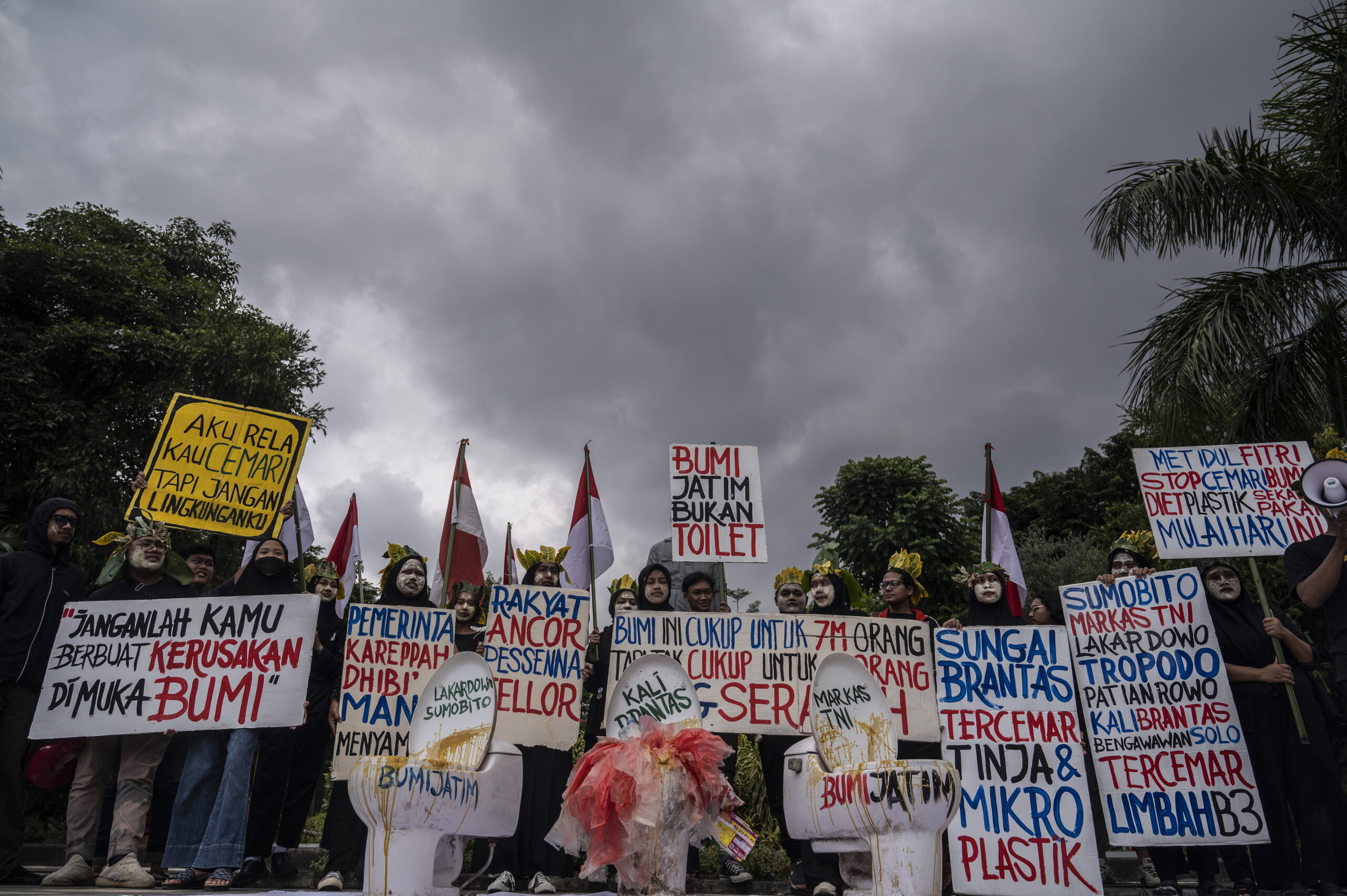
Southeast Asia under Severe Stress
As rising temperatures grip the world, Southeast Asia has recently seen record-breaking temperatures that are already inflicting a severe blow to lives and livelihoods. A 1% increase in temperature could raise food production costs as much as 0.8% in Southeast Asian economies, as evidenced by food price hikes in the Philippines, Thailand and Vietnam.
With its population of nearly 700 million people, our region is among the primary victims of global warming. Featured at the top of lists of climate vulnerable countries, the Philippines, Indonesia, Vietnam and Myanmar have had the highest numbers of people displaced due to natural calamities. Ironically, Southeast Asia is also a leading contributor to additional greenhouse gas (GHG) emissions. Regional economies have grown at some 5% a year over the past decade with a 6% annual increase in electricity demand, most of it met unfortunately by fossil fuels. These polluting fuels comprise some 75% of Southeast Asia’s electricity, with coal at about 50%, with the green portion of the grid expanding far too slowly.
Vietnam illustrates the challenge of securing economic growth in accordance with climate actions. Bangladesh and Vietnam are ranked at the top globally on exposure to flooding, and both risk losing a significant portion of GDP to climate damages. Vietnam’s GDP loss from climate change was an estimated 3.2% in 2020 and is expected to rise to as great as 14.5% by 2050 without strong action.
The case is clear for prioritising such mitigation strategies as coastal embankments, residential and business zoning, retrofitting infrastructure and stronger drainage systems.
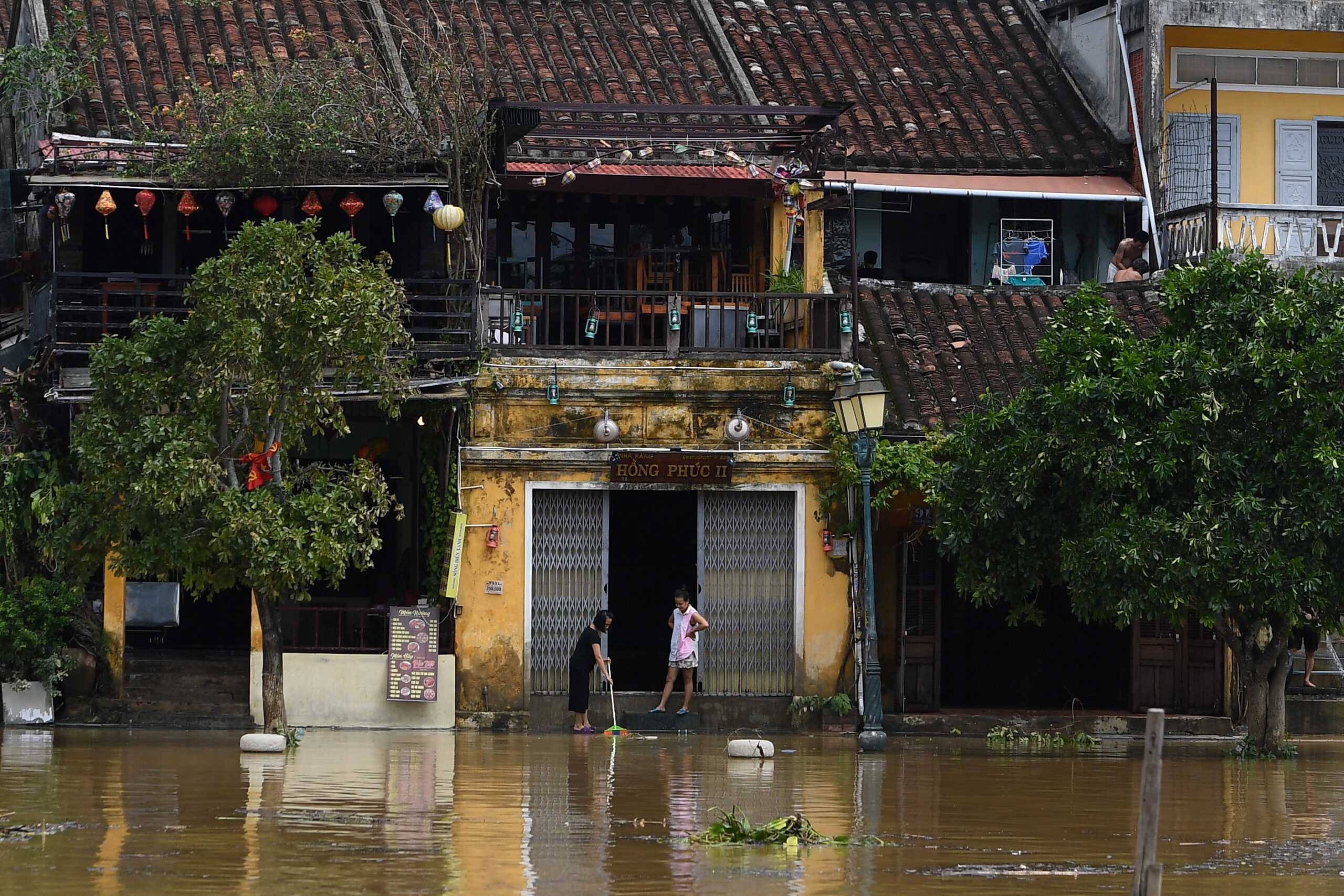
The Twin Tasks of Mitigation and Adaptation
The upshot of these trends is that GHG emissions and disasters are causally linked. With the current pattern of fossil-fuel led economic growth, sea levels will continue to rise.
The water could climb 0.2 metres by 2050 in Singapore. Possibly there and elsewhere in low-lying Southeast Asia – together with land subsidence, or sinking in coastal cities – this kind of sea level would wreak havoc. The region would clearly want to be a leading advocate of wind, solar and other renewables, and ASEAN must make this direction its top priority.
Since the late 1990s, ASEAN has said that renewables are a key to regional trade and integration based on regional power grids. Some regional power grids are in place—11 shared power lines currently run between six pairs of ASEAN countries—but they need to better handle the intermittency of renewable energy. Making progress on cross-border integration is essential especially as Singapore, the Philippines, Thailand and Cambodia are energy importers.
Because the climate disasters being witnessed today are the result of carbon accumulation in the atmosphere which will stay in place for decades, the priority for climate adaptation is patently clear. Adaptation efforts need to be multi-faceted, ranging from expenditure on infrastructure such as drainage systems and coastal embankments to spending on social sectors including health and safety nets. There is also a real need to call on stakeholders to work across their traditional sectoral boundaries, and not in isolated silos.
Higher allocations of funding are needed to deal with disasters, but these funds ought to be approved in advance in order not to lose time with financing approvals during moments of crisis. Equally important is the efficient and timely deployment of funds, with ample monitoring and evaluation of its effectiveness on the ground to help improve performance.
The spate of weather extremes confirms scientific predictions of the hand of human-made climate change in endangering lives and livelihoods. As Southeast Asia and other regions are busy dealing with the immediate fallout of soaring temperatures and deadly floods, it’s imperative they also prepare for worst-case scenarios down the road. To change this future direction for the better, public opinion needs to support disaster prevention and preparedness, not just disaster relief and rehabilitation.
Vinod Thomas is Associate Senior Fellow, The Institute of Southeast Asian Studies, Singapore and author of the new book Risk and Resilience in the Era of Climate Change, Palgrave Macmillan, April 4, 2023.
Violence in Myanmar expected to worsen as civilians given right to bear arms
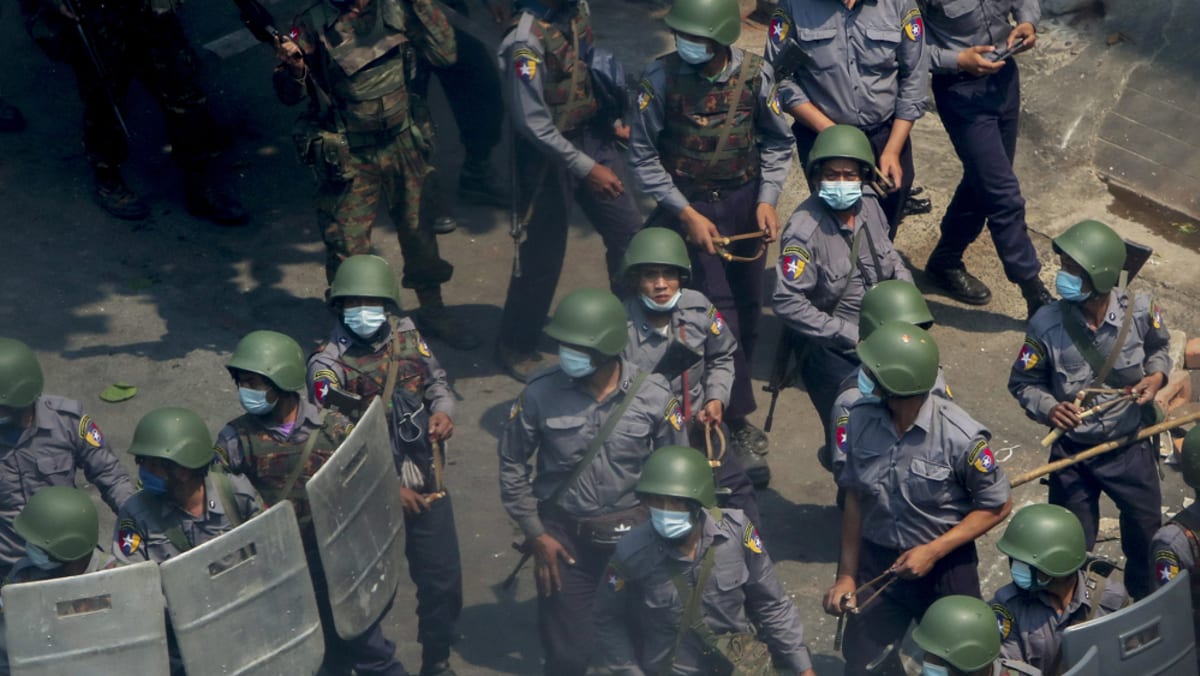
Ms Moe Thuzar, senior fellow and coordinator of the Myanmar Studies Programme at the ISEAS – Yusof Ishak Institute, said questions remain over who actually needs to use guns in the country.
“Looking back at past practice (and) past precedents, we do see that the people who were holding arms were either those that were very much close to or connected to the military authorities, or people who were military personnel or ex-military personnel, veterans and so on,” she noted.
For locals, the new policy adds another layer of fear to their lives. Many said there is no rule of law, and they feel unsafe even when doing basic daily chores such as going to the market.
Occasional attacks and assassinations on supporters of the junta have also occurred, even before the new gun law was introduced.
An urban guerrilla group, for instance, claimed responsibility for the death of an elections official in Yangon in April this year. He was a witness in the electoral fraud case surrounding ousted leader Aung San Suu Kyi.
Covid inpatients increase amid concerns about children’s development

The number of Covid-19 inpatients rose last week while health authorities encouraged vaccination for young children to protect their development.
Dr Tares Krassanairawiwong, director-general of the Department of Disease Control, said that from May 28 to June 3 there were 3,085 Covid-19 inpatients, up 4% from the previous week.
On average there were about 440 Covid-19 inpatients a day last week, up from 424 in the previous week.
However, the number of inpatients with lung inflammation dropped to 386 from 425. Among them, 243 were dependent on ventilators, down from 253.
Meanwhile, fatalities related to Covid-19 rose. Last week there were 68 new fatalities, up by 62% from 42 in the previous week.
Dr Tares said that elderly people, those with underlying diseases and pregnant women formed 97% of the new deaths and they were insufficiently vaccinated against Covid-19.
He encouraged people to receive annual vaccinations to prevent serious illness and death in case they contract the disease.
He said this year children younger than one year old had the highest rate of Covid-19 illness, 1,581 per 100,000 people, followed by those aged 70 years old and over, (647 per 100,000).
Dr Tares recommended parents bring young children for Covid-19 vaccinations. He said there were fewer undesireable symptoms among the young than among older children, and Covid-19 vaccines had proven internationally to be very safe for recipients.
There could be a fever for a few days, but no severe or dangerous symptoms in young vaccine recipients, he said.
Prof Dr Kulkalaya Chokpaibulkit, a paediatrician at Siriraj Hospital, said vaccination cut the risks of long Covid symptoms and multisystem inflammatory syndrome in children (MIS-C).
Unvaccinated children with underlying illnesses could develop severe and prolonged symptoms which might affect their development, she said.
China’s May imports to fall again, exports slip into red
BEIJING: China’s imports are expected to have contracted in May, despite a low base last year as a lockdown in Shanghai brought the country’s biggest port to a standstill, while exports likely fell for the first time in three months, a Reuters poll showed. Inbound shipments to the world’s second-largestContinue Reading

